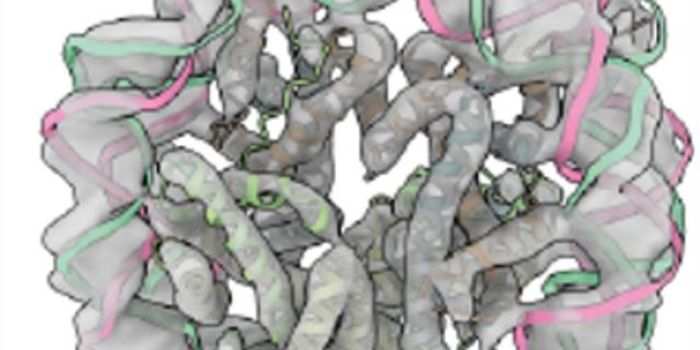Amyloid From the Liver May Contribute to Alzheimer's
While many changes have been observed in the brains of Alzheimer's disease patients, amyloid plaques are considered a hallmark of the disease. Though beta-amyloid has not been shown conclusively to be a cause of the disease, it's one hypothesis. A form of the amyloid protein called beta-amyloid 42 is thought to be particularly harmful. Clumps of beta-amyloid accumulate in the brains of Alzheimer's patients and animal models, and they can disrupt the function of neurons. Now, researchers have found that amyloid proteins that are made in the liver can migrate to the brain, where they may cause neurodegeneration. This work has opened up the possibility that a peripheral organ, the liver, is contributing to disease in the brain. The findings have been reported in PLOS Biology.
Not all amyloid proteins are bad. Beta-amyloid is known to be present in several organs. However, the level of beta-amyloid in the blood has been correlated with the severity of cognitive decline and the level of amyloid plaques in the brains of Alzheimer's patients. But it is difficult to distinguish between beta-amyloid that's been made in the brain and beta-amyloid that's produced elsewhere in the body.
In this research, scientists were able to engineer a mouse model that generated the human form of beta-amyloid in their liver cells. In this model, beta-amyloid was ferried around in the blood by lipoproteins, which happens in humans, and then on to the brain. In the brains of these mice, there was evidence of neurodegeneration, atrophy, inflammation in the vasculature, and capillary dysfunction, which are also found in Alzheimer's disease patients.
The study authors suggested that beta-amyloid made outside the central nervous system may be contributing to the development of human disease, and this work could have significant implications for Alzheimer's. In rare, genetic forms of Alzheimer's disease, overproduction of beta-amyloid seems to occur in the brain. But excessive levels of beta-amyloid have not been thought to contribute to most cases of Alzheimer's. Instead, lifestyle choices like a diet high in fats are thought to influence neurodegeneration, and high-fat diets could be promoting the production of beta-amyloid in the liver.
Beta-amyloid made in the periphery could be having a major impact on disease through their effect on brain capillaries, suggested senior study author John Mamo, a Distinguished Professor at Curtin University.
More work will be needed to explore these findings, the researchers acknowledged. But, the study could open up a new avenue toward reducing Alzheimer's risk or progression.
Sources: AAAS/Eurekalert, PLOS Biology











